The philosophy that has driven Darpan Inani’s life is simple. “Chess and life are about vision, not visibility,” says the 30-year-old, who won two gold medals — individual and team — at the Para Asian Games in China in October 2023.
Darpan had defeated sighted players at the Creon Open International Chess Tournament in France in 2018. This made him the only, and first-ever, visually impaired chess player from India to secure the top position in a sighted tournament at the international level! In fact, he says, 80 to 90% of his chess career has involved playing against sighted opponents.
An only child, Darpan was born in Udaipur, Rajasthan. When he was six months old, his family moved to Gujarat, where his father wanted to set up his own business, and he has been based in Vadodara ever since. When he was just three years old, tragedy struck. He was afflicted with Stevens-Johnson Syndrome, a rare, life-threatening condition, and lost his eyesight completely.
By the time he was eight, he had undergone 50 surgeries.
Never used Braille, thanks to technology
When doctors gave up hope, Darpan’s parents decided to focus on his education. His father, who runs a jewellery business, and his mother, a homemaker, wanted him to study in a mainstream school. Many schools refused admission, but his father kept trying.
Finally, Darpan was admitted to Baroda High School in Class 3. Until then, he had been homeschooled. “It was a life-changing experience to study in a mainstream school. I was the only blind student in the school. The teachers were incredibly supportive, and my friends helped me get around. During recess, my best friends would stay with me while the other children went down to the playground,” Darpan tells The Better India.
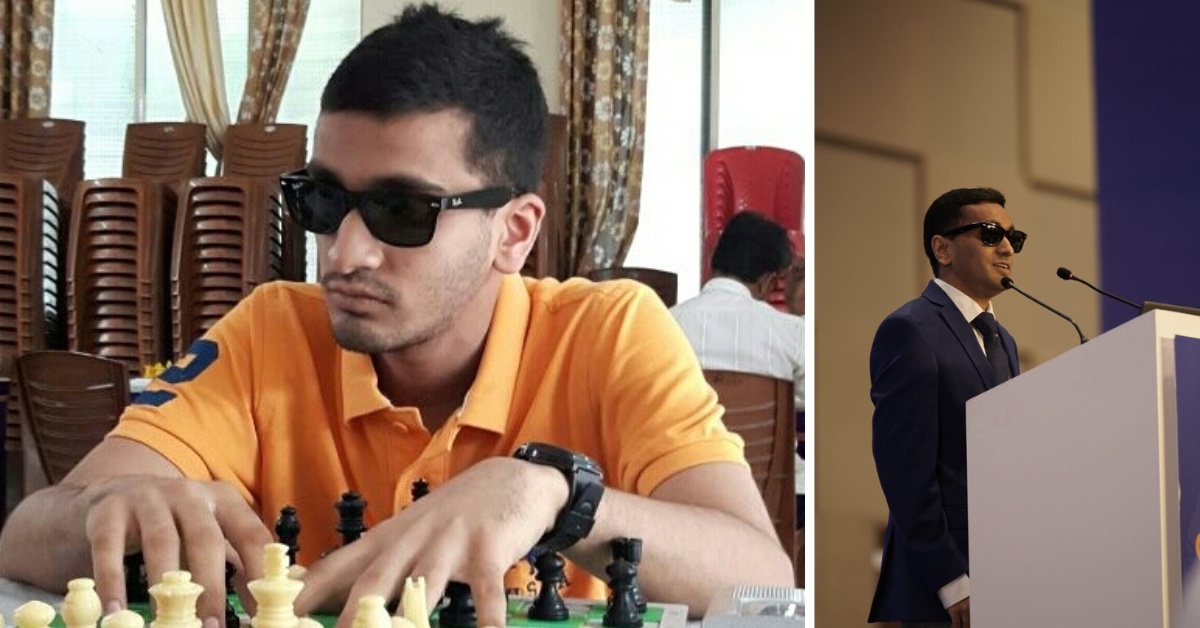
An exceptionally bright student, he never needed tuition classes. He would either top his class or secure second rank.
But what truly distinguished Darpan was his inspiring learning method. He never used Braille to read, write, or take exams. “I stayed mainstream, enabled by technology. The school authorities would scan question papers, and I would answer them using a talking software called JAWS,” he shares.
JAWS (Job Access With Speech) is a computer screen reader programme that allows blind and visually impaired users to read the screen with a text-to-speech output.
When chess came into the picture
“I couldn’t play physical sports like kho kho and kabaddi. So, my father and I visited the Blind Welfare Association in Vadodara, where I discovered a specially designed chessboard for the visually impaired. I was attracted to chess because it’s the only sport where you can compete with sighted players and beat them without any relaxations or modifications to the rules,” he says.
Darpan’s father, Satish Inani, taught him the basics of chess. “At the Blind Welfare Association, they gave us a ball, a pack of cards, and the chess board. We did not want him to play cards, and the ball wasn’t suitable for playing with sighted people. So, we encouraged him to take up chess seriously,” says Satish.
While chess became a central part of his life, Darpan also focused on his academics. He joined a BCom programme at the Maharaja Sayajirao University of Baroda and simultaneously studied for the CA (Chartered Accountant) exams.
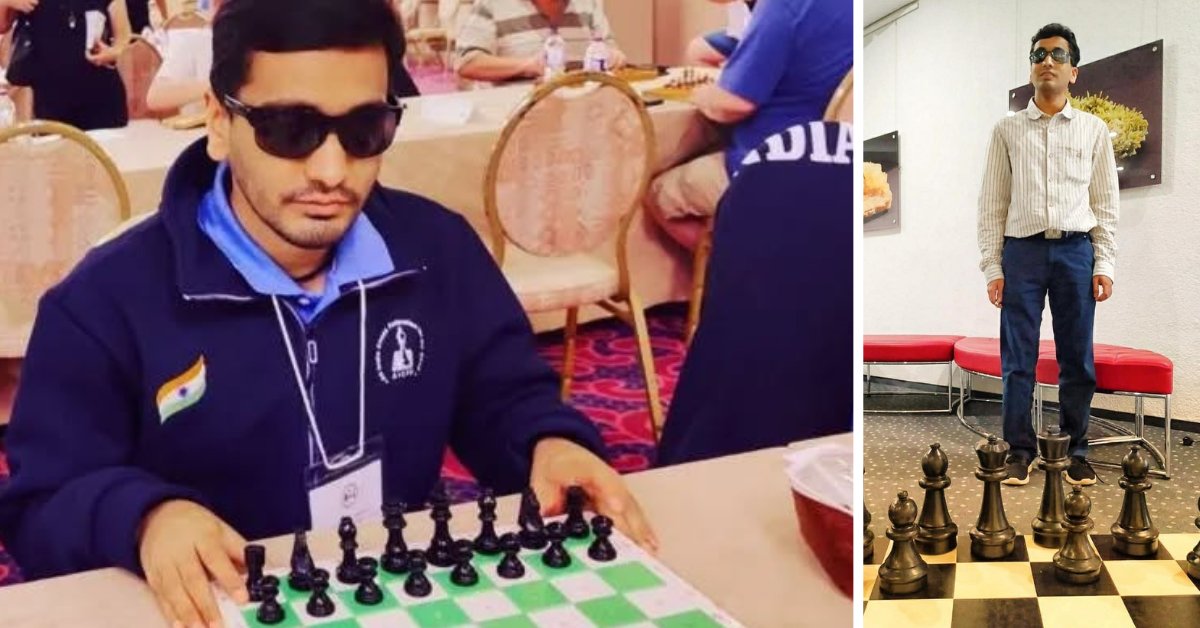
In 2015, he appeared for CAT and was admitted to IIM Lucknow. “My parents weren’t willing to send me to Lucknow to be on my own for two years. I was just 21. Also, the studies at IIM would have been intensely hectic, and I wouldn’t have been able to pursue chess. Moreover, I was already a CA,” Darpan explains.
Currently, he is self-employed and almost as passionate about studying the equity markets as he is about chess. His work hours are from 9 am to 4 pm, and he operates from an office in his home.
Despite his professional commitments, Darpan ensures that chess holds a significant place in his routine. “Until a year ago, I would practise chess for two hours a day. Now, I ramp up my practice before a tournament and devote six to seven hours to chess. I work with my coach, Srinath Narayanan, before a tournament. He stays with me, and we work on strategies. I also play online chess and solve chess puzzles, which sharpen my technical skills. When I learn something new, I experiment at local tournaments,” he says.
Explaining his preparation process further, Darpan emphasises that while playing with opponents is important, dedicating time to study openings, middle games, and endgames is equally crucial. In addition to analysing recent games, he also studies classical matches of earlier world champions.
‘My parents are my backbone’
Though Darpan does not remember his parents’ faces, their support has played a huge role in his success. His mother, Vimla Inani, travels with him for national and international tournaments. “I maintain his score sheet during games and take care of his food needs. It was a very proud moment for us when he won two medals for the country at the Para Asian Games in 2023,” she says.
Satish, Darpan’s father adds, “We cannot express how happy we feel when our child achieves something. If we are known today because of our son, it is the biggest source of joy for us.”
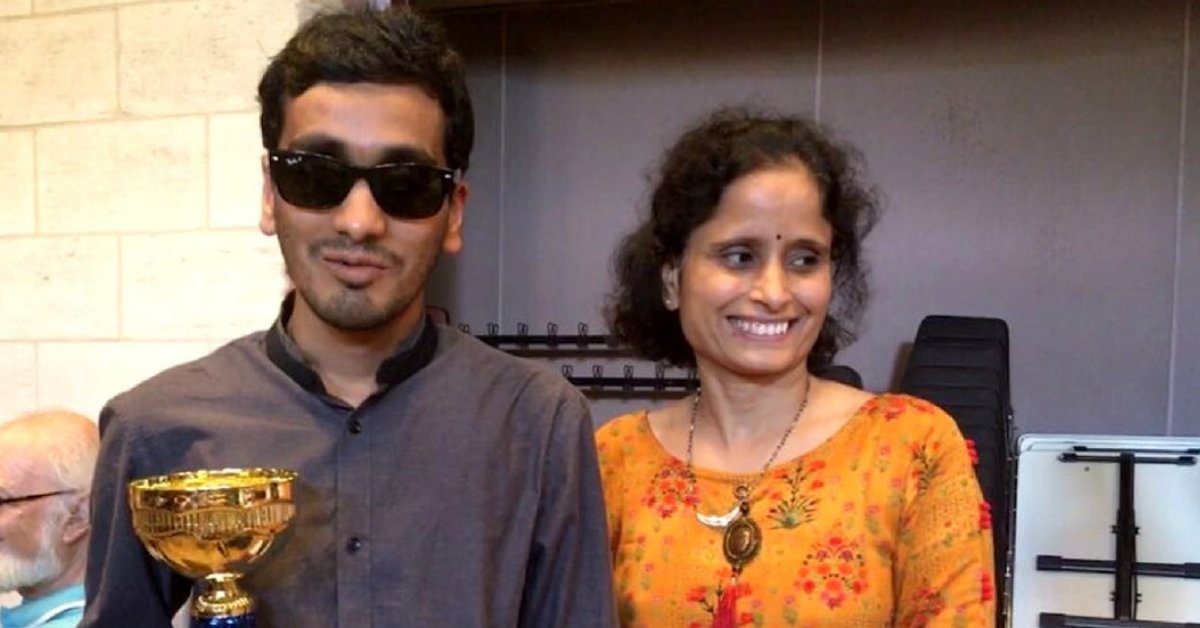
Meanwhile, Darpan’s coach, Srinath Narayanan, recognises his exceptional strategic acumen. “Darpan has excellent strategic sense and logic. He excels at logical thinking in general, and this spills over into chess as well. I wouldn’t call it a weakness, but his dynamic play has room for improvement.”
Srinath adds, “He has remarkable resilience. I saw this particularly during the Para Asian Games last year when he bounced back after a heartbreaking classical event where he missed the bronze by a whisker. In general, his attitude towards life stand out. Darpan excels in several fields. If he chooses to focus his attention on chess, the sky’s the limit for him.”
Blazing trails in the chess world
Darpan draws inspiration from two remarkable figures: Viswanathan Anand in chess and Stephen Hawking, the late English theoretical physicist and cosmologist who was paralysed and lost his speech.
Meeting Anand in 2010 was a defining moment for Darpan. That year, at just 16, he became the youngest player to win the National Blind Championship — a milestone that made the meeting with his idol even more special.
Since then, Darpan’s journey has been dotted with achievements. His current FIDE (World Chess Federation) Elo rating stands at 1939, but he once reached a peak rating of 2135 — the highest ever achieved by a visually impaired player from India. “This was pre-COVID. After COVID, I lost some momentum and lost 200 rating points,” he explains.
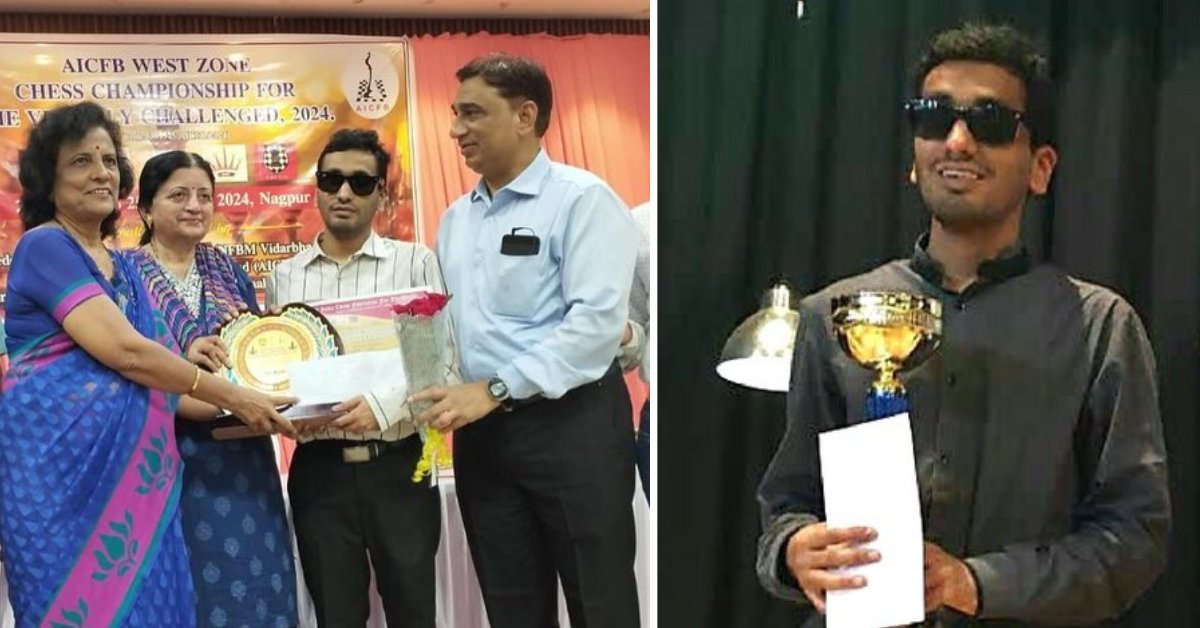
However, Darpan’s resilience doesn’t allow him to give in to such challenges. He has won the U13, U15, and U17 sighted state chess tournaments and represented Gujarat at the national level several times. His achievements have earned him the Rashtriya Swayamsiddh Samman award by Jindal Steel & Power Ltd in the sports category, along with the Yuva Ratna award from the All India Marwari Yuva Manch.
Despite these accolades, Darpan acknowledges the struggles behind the victories. “Initially, I found it difficult to deal with losing a chess game. I was used to performing well academically. However, I now realise that sports and academics are pretty different. Sports are unpredictable. Now, I learn from my defeats.”
He also shares that chess has unique mental demands. “In a chess game, it is mandatory to write down your moves. When my opponent announces his move, the picture changes dynamically in my head with each move. I get to know the positioning of pieces and the possible manoeuvres. If needed, I can touch the board in case I can’t recall the picture in my mind,” explains Darpan.
“If you play well for four hours and falter in the last half hour, all is lost. You lose the entire game. It is a challenge to concentrate for so long, and exhaustion kicks in,” he admits.
More than a chess player
Darpan has delivered several talks, including a much-appreciated TEDxYouth talk in Lucknow. He usually discusses his challenges and how he overcame them, emphasising the mindset people should adopt: “Resilience is vital, whatever challenges come your way,” he insists. In his TEDx talk, he said, “‘I can’ is more important than IQ!”
He also featured in the lead role in an award-winning chess documentary called Algorithms.
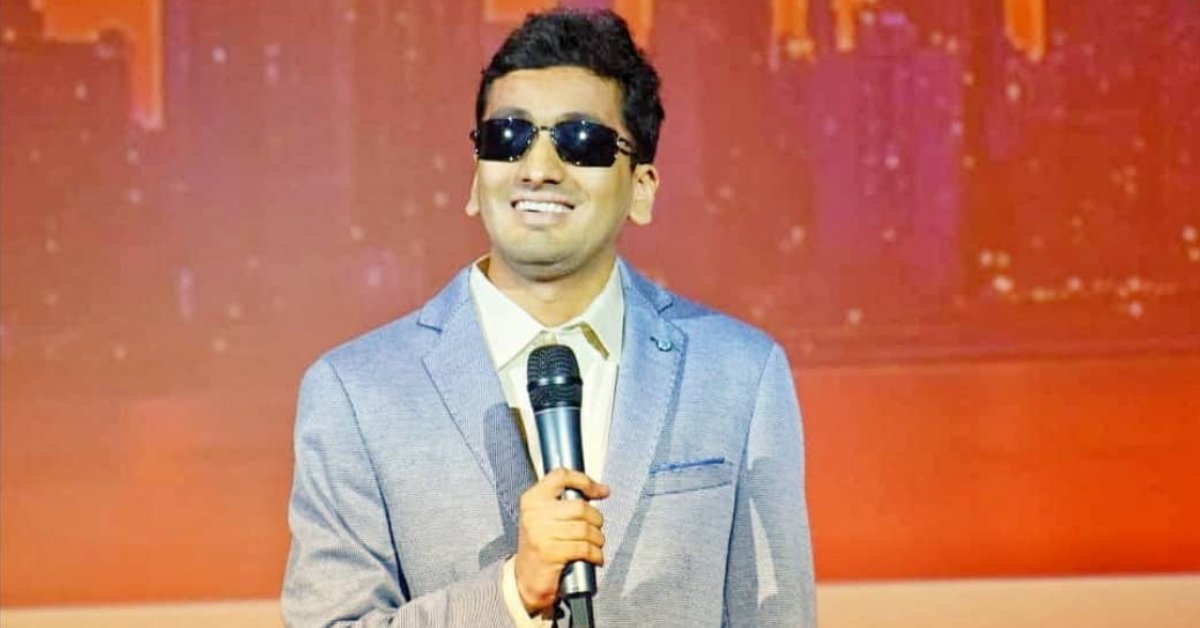
Talented in music as well, he has learnt the harmonium and tabla for four years. “Chess took over, and I couldn’t continue learning music. But I still enjoy listening to Bollywood songs, especially Arijit Singh and Shreya Ghoshal. I also spend a lot of time reading — mostly non-fiction. I love self-help books. I have a collection of 500-600 soft copies and use JAWS to go through them,” says Darpan.
If you were to ask Darpan to describe himself as a chess player in one word, he’d say aggressive. “Instead of killing the possibilities and playing a calm game, I like a ‘messy’ game!”
For Darpan, both life and chess follow the same rule: it’s not about what you see, but how you think — and how boldly you make your next move.
Edited by Khushi Arora; All images courtesy Darpan Inani
No comments:
Post a Comment